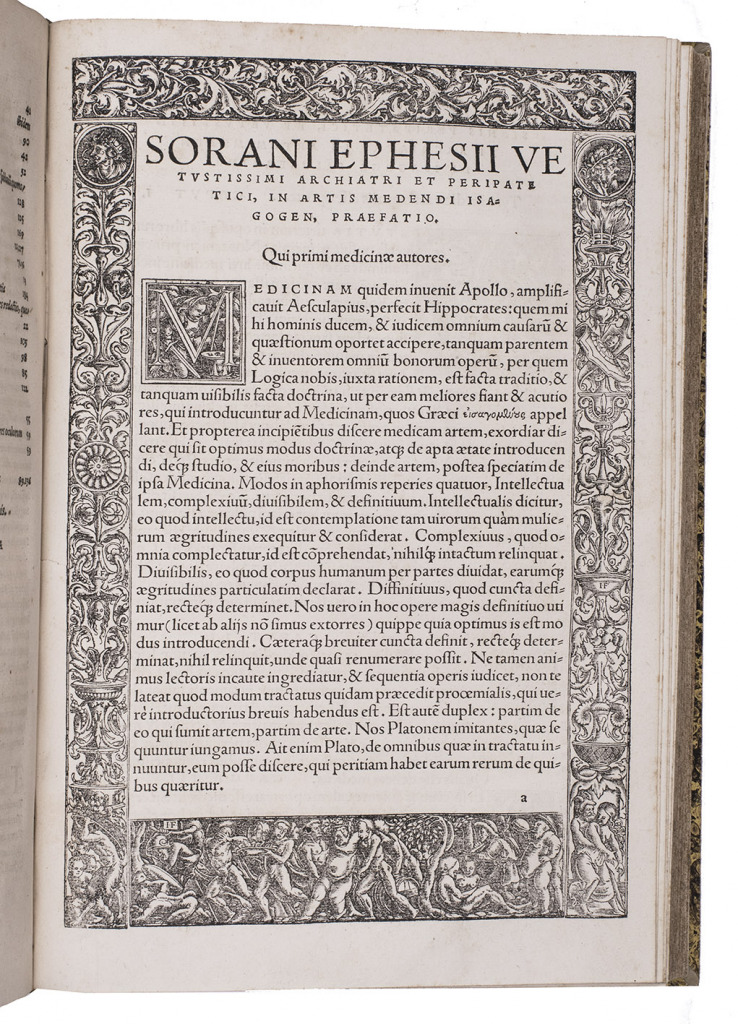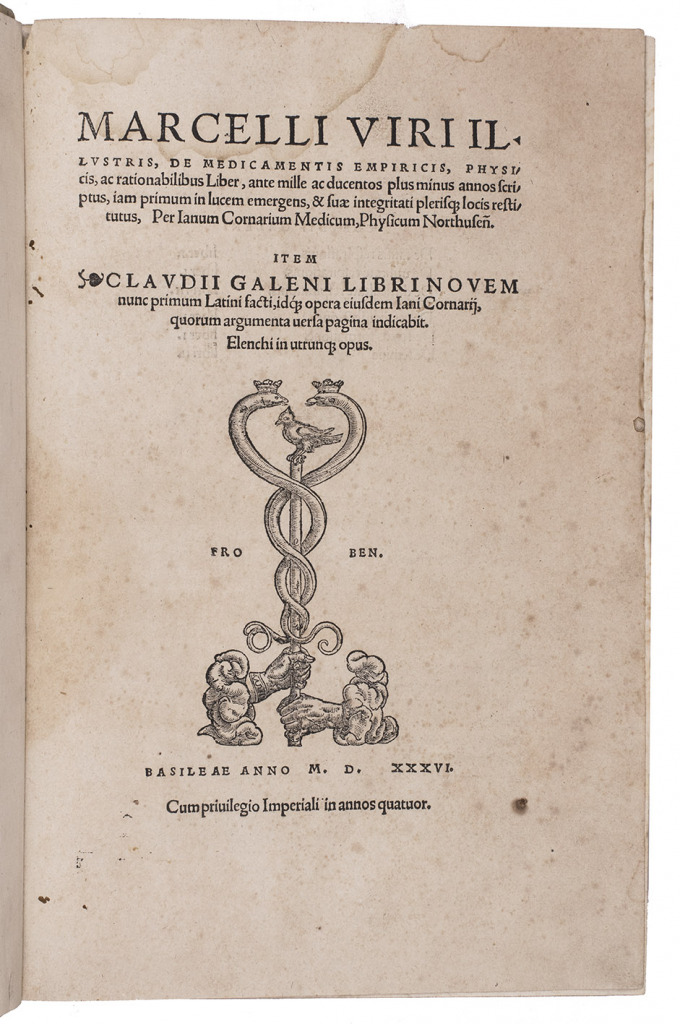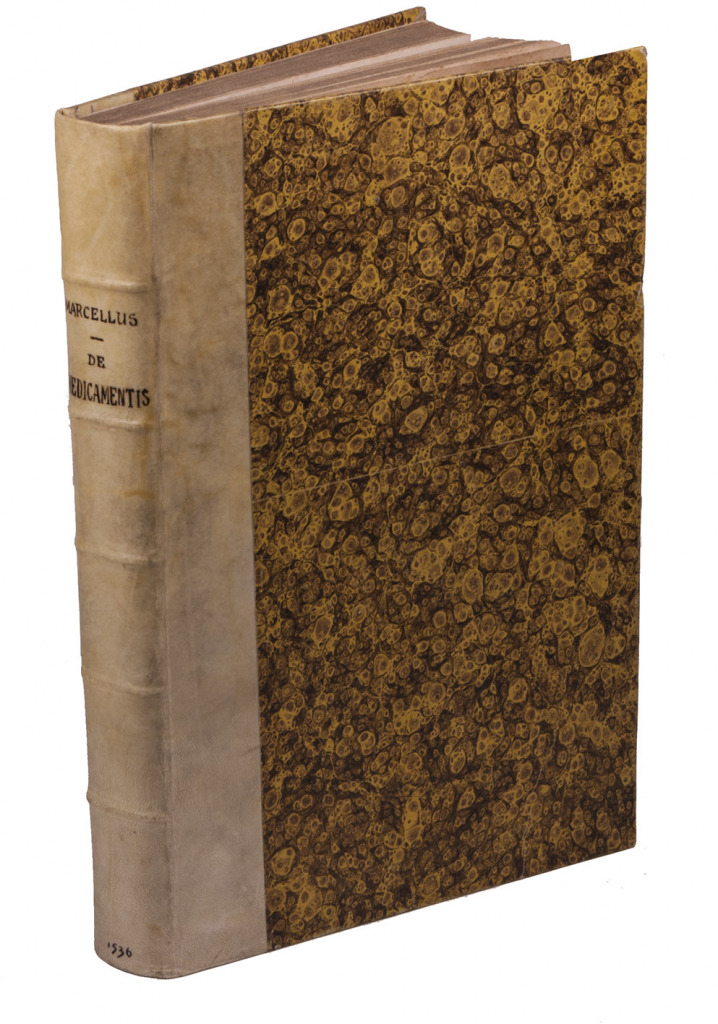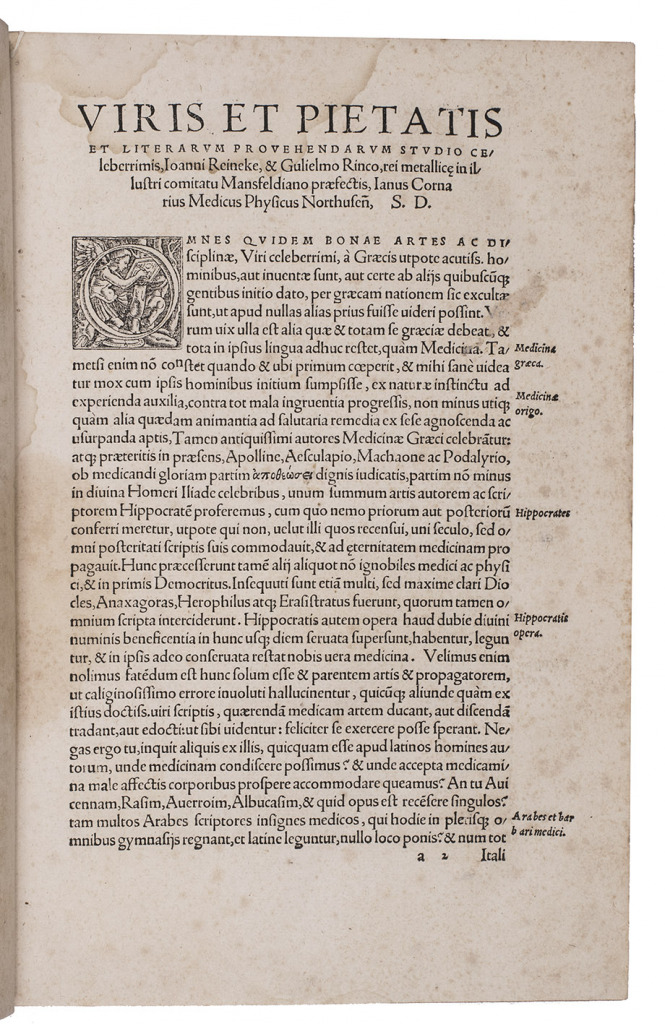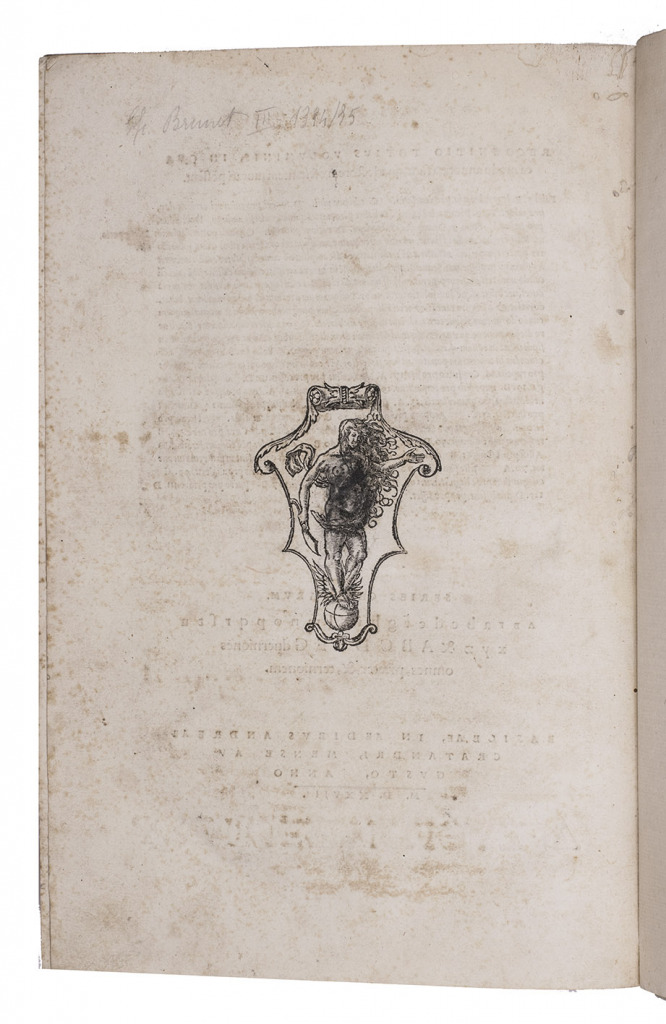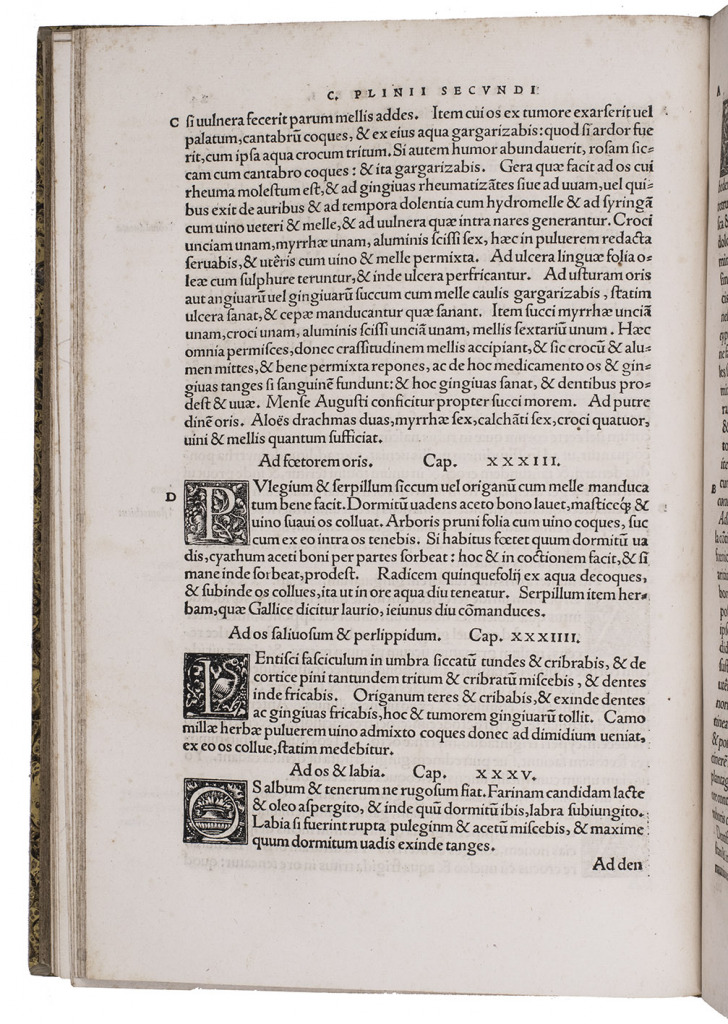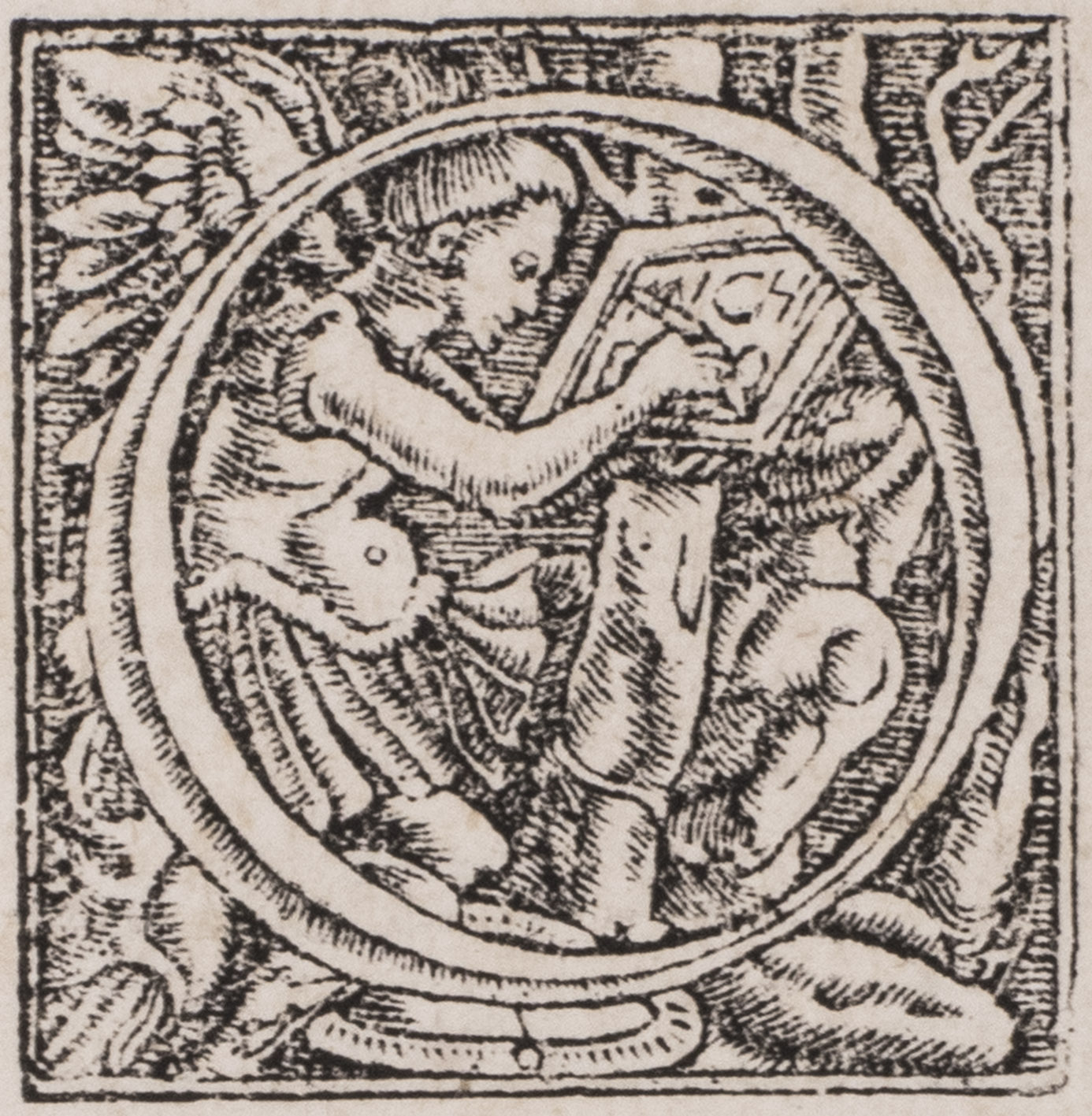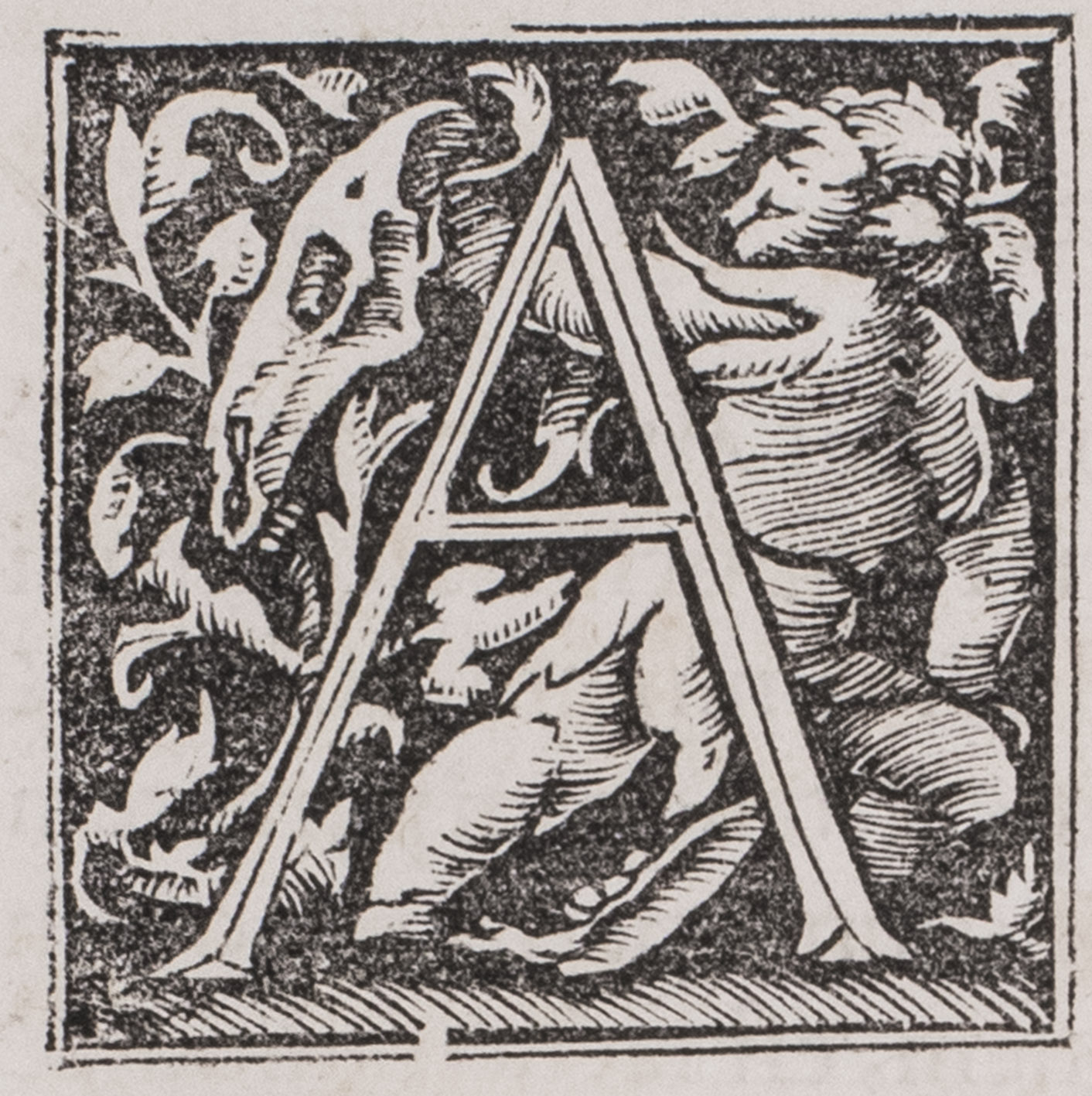MARCELLUS EMPIRICUS.
De medicamentis Empiricis physicis ac rationalibus liber.
Basel, Froben, 1536. With a woodcut caduceus device on title-page and several woodcut initials. Set in roman types.
With: (2) [THORER, Alban]. [De re medica].
(Colophon: Basel, Andreas Cratander, 1528). With the first leaf of the main text in a 4-piece woodcut border (3 initalled I.F.), Cratander's woodcut device on the last otherwise blank leaf, showing Occasio, the goddess of chance, and dozens of charming woodcut initials. Set in roman types. 2 works in 1 volume. Small folio (30 x 22 cm). 20th-century half parchment. 252, [12]; 125, [1] ll.
€ 25,000
Ad 1: First edition of an ancient compendium of pharmacological preparations by the Gallo-Roman physician Marcellus Empiricus, originally composed ca. 410 AD. "An extraordinary mixture of traditional knowledge, popular (Celtic) medicine, and rank superstition. Interesting also for the historian of botany, because of the great number of plants mentioned" (Sarton). Marcellus was born in Bordeaux and magister officiorum under Theodosius I (379-395).
Ad 2: First edition of a collection of four medical works, compiled by the Swiss physician Albanus Torinus (1489-1550). The main part of the work consists of De re medica, also known as Medicina Pliniana, a very popular medical text during the Middle Ages. Compiled in the fourth century by an anonymous author, it is generally ascribed to Plinius Valerianus, also called pseudo-Plinius, since it mainly derived from Pliny the Elder's Historia naturalis.
The work also contains three other medical works from different authors. "The contents are all either spurious works or later compilations from genuine works of the authors to whom they are attributed" (Durling). It starts with an introduction to "the art of healing", ascribed to Soranus of Ephesus. The second text is by Oribasius, a Greek medical writer from the fourth century BC. The work closes with a botanical text, De virtutibus herbarum, ascribed to Lucius Apuleius Madaurensis, but written by an anonymous author from the fourth century, known as Pseudo-Apuleius.
With many sentences marked in pencil in the fore-edge margins. The Marcellus Empiricus was originally published together with a work by Galen, here replaced by Thorer's De re medica, lacking the first 12 leaves (title-page and preliminaries). With a minor water stain at the head of the first 25 leaves and the title-page of ad 1 slightly browned. Ad 1: Durling 2951; USTC 604332; Wellcome I, 4043; cf. Sarton, Introduction to the hist. of science I, p. 391; ad 2: Durling 4351; Parkinson 2410; USTC 605590; not in Wellcome.
Related Subjects:
